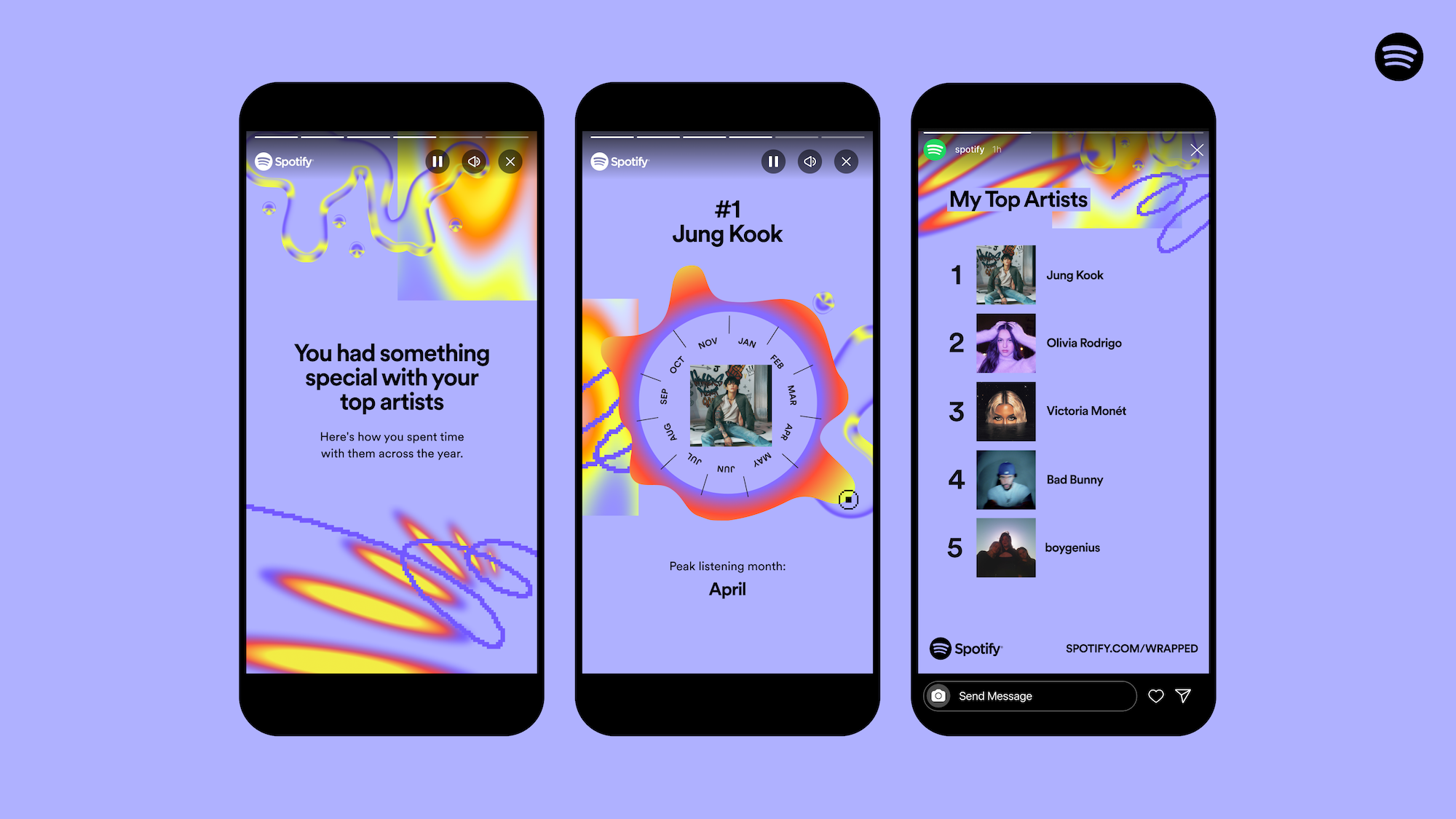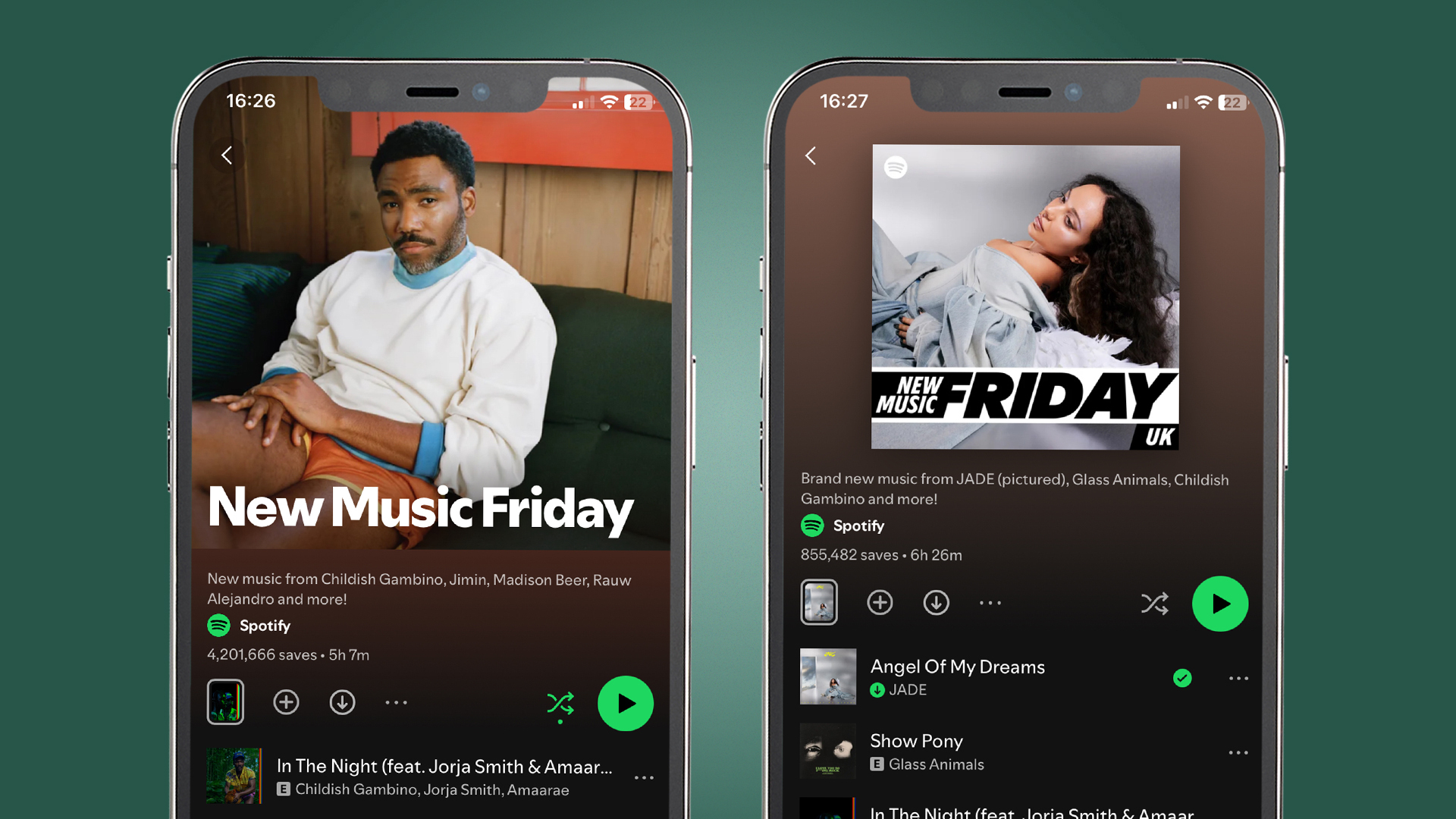The way I listen to music is functional. I have playlists for the gym, background music for work, and upbeat tracks to push me through an afternoon slump. My choices are tied to specific activities and times of day, so when Spotify introduced Daylist in September 2023, I was hooked.
Daylist is a dynamic, personalized playlist that updates throughout the day based on your listening habits. It curates tracks that match past choices, adjusting to different times and, in theory, moods. It’s ideal – open it, laugh at the AI-generated playlist names, hit shuffle, and go, no thinking required.
But is that a good thing? At first, I loved it. But over time, it shifted from something I enjoyed to something I heavily relied on without realizing. And now, I’ve started to notice a pattern – the same themes, the same kinds of tracks appearing again and again.
Which makes me wonder: Am I stuck in an AI-curated loop, feeding the same preferences back into the system until my tastes become a closed circuit? Is Spotify’s recommendation algorithm making me predictable – and, dare I say it, boring?

How do recommendations work?
Personalized content is a huge part of Spotify’s success, and Daylist is just one of many recommendation-driven features. There’s Discover Weekly, Release Radar, Daily Mix, On Repeat, Repeat Rewind, Your Daily Podcasts, and more.
Seasonal playlists, like Spotify Wrapped, also keep things fresh. Spotify’s approach has been so successful that other streaming services have followed suit, refining their own playlist and recommendation engines to compete.
Some playlists are curated by actual humans at Spotify, but most rely on recommendation algorithms. The system pulls from several inputs: what you listen to, what you skip, what you save, your location, age, broader listener behavior, and general trends. One key method is collaborative filtering, which analyzes users with similar habits to recommend music you might like.
Another technique, content-based filtering, examines song characteristics – like tempo, genre, and instrumentation – to find patterns and suggest similar tracks. Then there’s context-aware filtering, which considers time of day, location, and past listening behaviors – this is what powers Daylist.
These techniques work together to keep recommendations fresh but still personal. Even when it feels like the algorithm is just recycling my old favorites, it’s actually introducing new songs that fit my tastes – just with enough variety to keep things interesting.

The filter bubble
There’s a downside to all this personalization. The more I listen to algorithmic recommendations, the more my choices get reinforced, creating what’s known as an echo chamber or filter bubble.
And it’s not just Spotify. Netflix, YouTube, news apps – they all work the same way, feeding us more of what we already like, sometimes at the expense of real discovery.
This isn’t new. For years, our digital experiences – and even our tastes – have been shaped more by recommendations than by our own curiosity. Convenience is baked in, making it harder to break free. And let’s be honest – these platforms are designed to keep us scrolling, watching, and listening, not questioning what’s next.
Breaking free from The Algorithm
If AI-driven recommendations are keeping me in a musical rut, what’s the solution? The fixes are simple – almost embarrassingly so – but I needed the reminder.
Lately, I’ve been making an effort to seek out new music. I’m listening to more music podcasts, radio stations, and asking friends for recommendations. Even just recognizing that I might be stuck is a step forward.
I’ve also been using Spotify more intentionally – shuffling through my library to rediscover old favorites, searching for artists instead of mindlessly clicking on the dreamy color gradient of Daylist. This morning, instead of opening Daylist, I played a new music playlist. Not a huge step, but a small one.

Because as much as I love the convenience of an algorithm telling me what to listen to, what to like, what to care about, I don’t love how it commodifies music. These platforms aren’t designed to help us discover hidden gems or support emerging artists – they champion what’s already trending. Their real goal? Keeping us engaged and making money.
And yet, there’s something magical about human curation, randomness, and chance discoveries. But that kind of exploration takes effort, patience, and a willingness to get it wrong sometimes. Can we ever code that into an algorithm? It feels too messy, too human – but maybe one day.
Then again, maybe I’ve got it all wrong. Maybe these recommendation engines do understand something deeply human – just not the part we like to admit. We say we love discovery, that we crave newness. But when it comes to entertainment – movies, TV, music – maybe we’re not that adventurous. Maybe we just like things to feel familiar.
Maybe it’s not Spotify making me boring. Maybe I’m just boring.
This articles is written by : Nermeen Nabil Khear Abdelmalak
All rights reserved to : USAGOLDMIES . www.usagoldmines.com
You can Enjoy surfing our website categories and read more content in many fields you may like .
Why USAGoldMines ?
USAGoldMines is a comprehensive website offering the latest in financial, crypto, and technical news. With specialized sections for each category, it provides readers with up-to-date market insights, investment trends, and technological advancements, making it a valuable resource for investors and enthusiasts in the fast-paced financial world.
